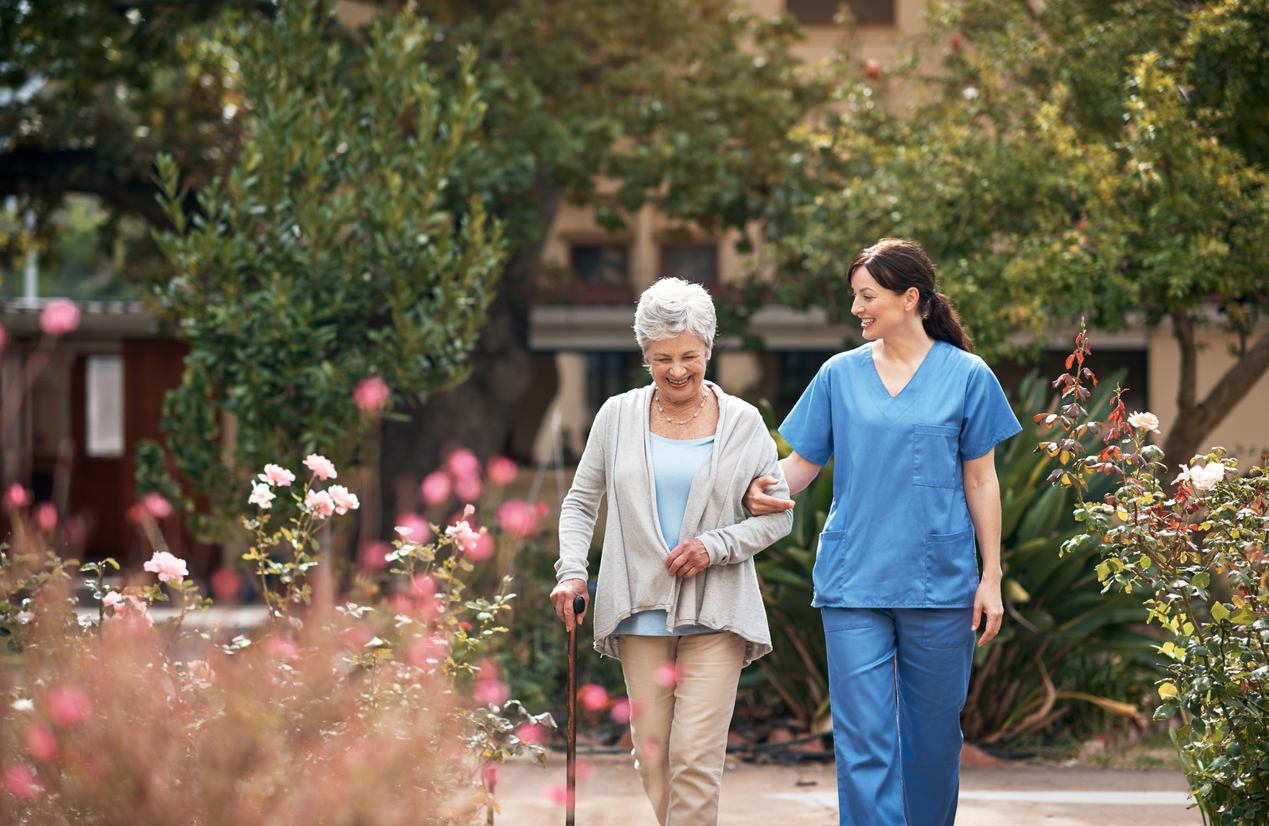
Image credit: iStock
As our loved ones age, it becomes increasingly important to ensure they receive the best possible care to maintain their physical and mental well-being. When elderly individuals transition into care, whether in a supported living facility or other care settings, it can be a daunting experience for them and their families. However, with the right strategies and support, elderly health can be effectively managed, and their quality of life significantly improved.
1. Encourage Open Communication
Effective communication is key to understanding the elderly person's needs, concerns, and preferences. Encourage them to express their feelings and listen attentively to their responses. This will help caregivers identify potential health issues early on and address them promptly. Open communication also fosters trust, reducing anxiety and stress, which can have a negative impact on overall health.
2. Develop a Personalised Care Plan
A tailored care plan should be created in collaboration with the elderly person, their family, and healthcare professionals. This plan should take into account their medical history, medication requirements, dietary needs, and lifestyle preferences. Regularly reviewing and updating the plan ensures it remains relevant and effective in meeting their changing needs.
3. Promote Physical Activity
Regular exercise is essential for maintaining physical health, mobility, and cognitive function in the elderly. Caregivers can encourage physical activity through gentle exercises, such as stretching, walking, or chair yoga, which can be adapted to accommodate mobility limitations. Even small amounts of physical activity can have a significant impact on overall health and well-being.
4. Manage Medication Effectively
Medication management is crucial in elderly care, as polypharmacy (the use of multiple medications) can lead to adverse reactions and interactions. Caregivers should ensure that medication is administered correctly and dosages are monitored regularly. It's also essential to educate the elderly person about their medications, including their purpose, dosage, and potential side effects.
5. Foster Social Connections
Social isolation can have devastating effects on elderly mental health, leading to depression, anxiety, and cognitive decline. Caregivers should encourage social interaction through activities, such as group outings, games, or simply spending time with friends and family. This helps maintain emotional well-being and reduces feelings of loneliness.
6. Provide Nutritious Meals and Hydration
A balanced diet is vital for maintaining elderly health, and caregivers should ensure that meals are nutritious, easy to digest, and tailored to individual needs. Adequate hydration is also essential, as dehydration can lead to serious health complications. Encourage the elderly person to drink plenty of water throughout the day.
7. Monitor Health Indicators
Regular monitoring of health indicators, such as blood pressure, blood glucose levels, and weight, helps caregivers identify potential health issues early on. This enables prompt intervention and prevents complications from arising.
8. Encourage Mental Stimulation
Mental stimulation is essential for maintaining cognitive function and reducing the risk of dementia. Caregivers can encourage mental stimulation through activities such as reading, puzzles, or learning a new skill. This helps keep the mind active and engaged.
9. Support Sleep Hygiene
Sleep disturbances are common in elderly individuals and can have a significant impact on overall health. Caregivers can promote sleep hygiene by establishing a consistent sleep schedule, creating a relaxing sleep environment, and encouraging relaxation techniques like meditation or deep breathing.
10. Foster a Sense of Purpose
A sense of purpose is essential for maintaining elderly mental health and well-being. Caregivers can encourage the elderly to engage in activities that bring them joy, such as hobbies, volunteering, or spending time with loved ones. This helps maintain a sense of fulfilment and purpose.
By implementing these strategies, caregivers can effectively manage elderly health in care, improving their overall quality of life and enabling them to thrive in their care setting, whether in a supported living facility or other care environments.
This article is part of the HealthManagement.org Point-of-View Programme.


![Tuberculosis Diagnostics: The Promise of [18F]FDT PET Imaging Tuberculosis Diagnostics: The Promise of [18F]FDT PET Imaging](https://res.cloudinary.com/healthmanagement-org/image/upload/c_thumb,f_auto,fl_lossy,h_184,q_90,w_500/v1721132076/cw/00127782_cw_image_wi_88cc5f34b1423cec414436d2748b40ce.webp)


